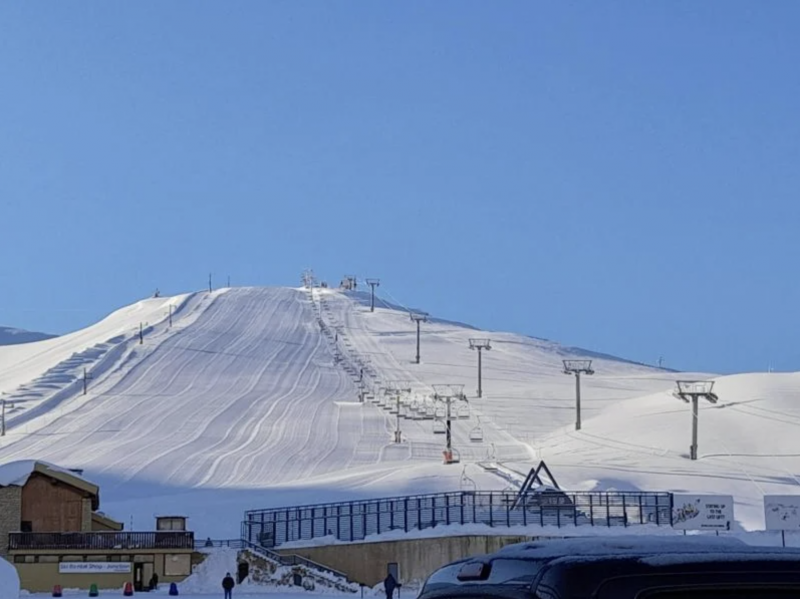
The slopes had to be re-prepared after each storm, resulting in additional costs. (Credit: Magaly Abboud/OLJ)
This year, Lebanon didn’t have a mild winter. Coastal temperatures dropped to around 5 to 7 degrees, even flirting with zero — illustrated by photos of snowy beaches in Jbeil and Batroun (Northern Lebanon) in January. If the snow reached the coast, it had obviously covered the peaks. It was, in theory, a godsend for ski resorts that had to close their doors for much of the 2021 season because of various measures taken to curb the Covid-19 pandemic. While spring now seems to have arrived in the country, L'Orient-Le Jour spoke with the main winter sports resorts this winter season, in the context of an economic and financial crisis that has dragged on for over two and a half years.
The snow
Lebanon’s crisis has seen the national currency depreciate by more than 90 percent, undermining the purchasing power of its residents; ESCWA estimates more than 74 percent of Lebanese now live below the poverty line. This situation hasn’t spared Lebanon’s ski resorts, and has pushed some to consider closing their doors this year.
Before the winter season, Metn’s Zaarour Club wondered if Lebanese could afford it, said CEO, Carole Murr — not only the daily ski pass, but the ski rental and the gasoline needed to reach mountain resorts from the coast.
Most resorts have little or no access to power from Électricité du Liban (EDL), Lebanon’s public utility, due to the distance for some. All those L'Orient-Le Jour contacted complained of a lack of power and unstable high voltage lines, necessary for the operation of ski lifts — a problem that existed before EDL increased rationing.
At a resort in Laqlouq, in the Jbeil district, employees were preparing to start the season by late November and early December. Resort Manager Nour Saab said she could find no fuel at this time; central bank fuel subsidies had already been lifted, massively increasing the price of gasoline. Laqlouq resort had to buy fuel on the black market, paying more than the Ministry of Energy and Water’s official rate. Murr confirmed that the same is true in Zaarour, saying, “we spent a lot of time during this season looking for diesel.”
With so many challenges, it was a headache setting daily ski rates. Nicole Wakim, communication manager at Kesrouan’s Mzaar Ski Resort, said, “the prices were set according to complicated market conditions.”
Elie Fakhry, CEO of North Lebanon’s Cedars resort took into account the transport rates. According to the latest available figures these costs increased by an estimated 510.28 percent in February year-on-year. With this in mind, the resort lowered its prices from 2019 and 2020. Laqlouq resort also took transportation into consideration, adding free parking spaces. Most resorts surveyed indicated they had lowered their prices from those in 2019 and 2020. In Mzaar, only one of two available skiing areas was accessible because it was assumed “there will not be enough skiers and in order to save diesel.”
While they were able to adjust prices to match their expenses, especially diesel, December saw a new variable come into play — the volatility of the lira. The exchange rate rose from LL22,000 per dollar on Dec. 3 to LL27,000 by the end of the month. The roller coaster ride saw the rate rise to over 30,000 lira to the dollar in early January before stabilizing at around LL20,000, then LL24,000, as a result of BDL’s massive infusion of dollars into the market. Rising exchange rates resulted in an increase in fuel prices, Murr recalled, noting that Zaarour did not change its prices as a result of this fluctuation.
Despite all these obstacles, the surveyed resorts remained open. A total closure would have hurt not only employees and seasonal workers but also the region’s hospitality workers and ski instructors. So, when the December snow fell, ski resorts like Mzaar welcomed it. “It had been several years since the resort had opened during the Christmas holidays,” the resort’s spokesman said, and could take advantage of expatriates with access to foreign funds. Murr said, “resort managers of Zaarour were very happy and that allowed us to think that the season was likely to be good,” though she noted she feared that, in addition to all the country’s other crises, global warming “is a threat to all ski resorts.” The 2014 season had been catastrophic. As Le Commerce du Levant Magazine had noted at that time, only a few resorts had been able to open their slopes, for only a day or two.
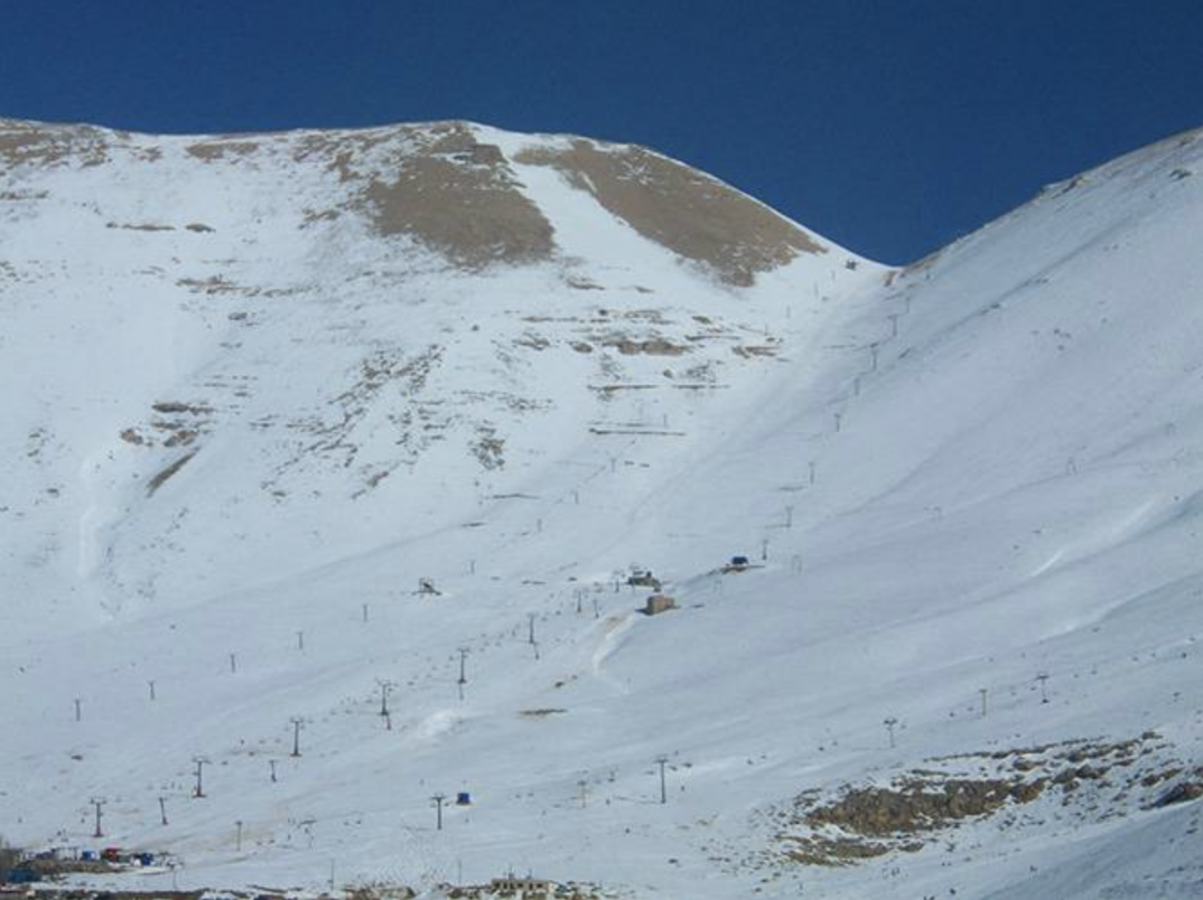 Snow-covered peaks in Lebanon's mountains during the month of December. (Credit: Magaly Abboud/OLJ)
Snow-covered peaks in Lebanon's mountains during the month of December. (Credit: Magaly Abboud/OLJ)
Disillusionment
The euphoria of the year-end celebrations gave way to disappointment, mainly because of the bad weather and the series of storms that hit Lebanon from January onwards. “In the first month of the year, there was a lot of snow,” explains Fakhry, “but Cedars was only able to open a few days a month. Only in March did we open for a full week.“
Murr adds that, most weekends — when employed people enjoy winter sports the most — were not sunny. The Laqlouq resort did open on a few days when the sun wasn't shining after a storm had subsided, but to no avail. “The Lebanese are not used to skiing when it's gray,” Saab said wistfully.
All this led to “fewer skiable days this year than in previous seasons,” Fakhry said. Adding, “though there was more snow.”
The weather was not the only obstacle to winter sports this year. Successive storms did overwhelm the roads with snow, blocking all traffic and requiring snowplows. Due to the crisis and the lira depreciation, though, neither the municipalities nor the Ministry of Public Works got enough fuel to clear the streets and allow cars to pass. This discouraged skiers from going to the resorts or — for those who have them — to their mountain chalets.
“Even before we opened the resort, our fear was that the roads would not be open,” said Murr.
“The opening of roads was not automatic. The state wanted to save diesel since the winter was expected to be long and harsh this year,” Fakhry confirmed.
As for Mzaar, Wakim said the resort itself took charge of clearing the village streets.
In March, the storms finally subsided. The sun was shining and the roads were cleared. Prospective skiers could easily get to the winter resorts. Then war broke out in Ukraine, which pushed up global crude prices and prompted gas station closures in Lebanon. Fuel sector professionals, importers, distributors and station owners refused to sell gasoline — still partly subsidized by the BDL at the price set by the Ministry of Energy — denouncing losses due to disparities between the Lebanese selling prices and the global purchase prices.
“The gas station closures in March affected us,” confirms Saab.
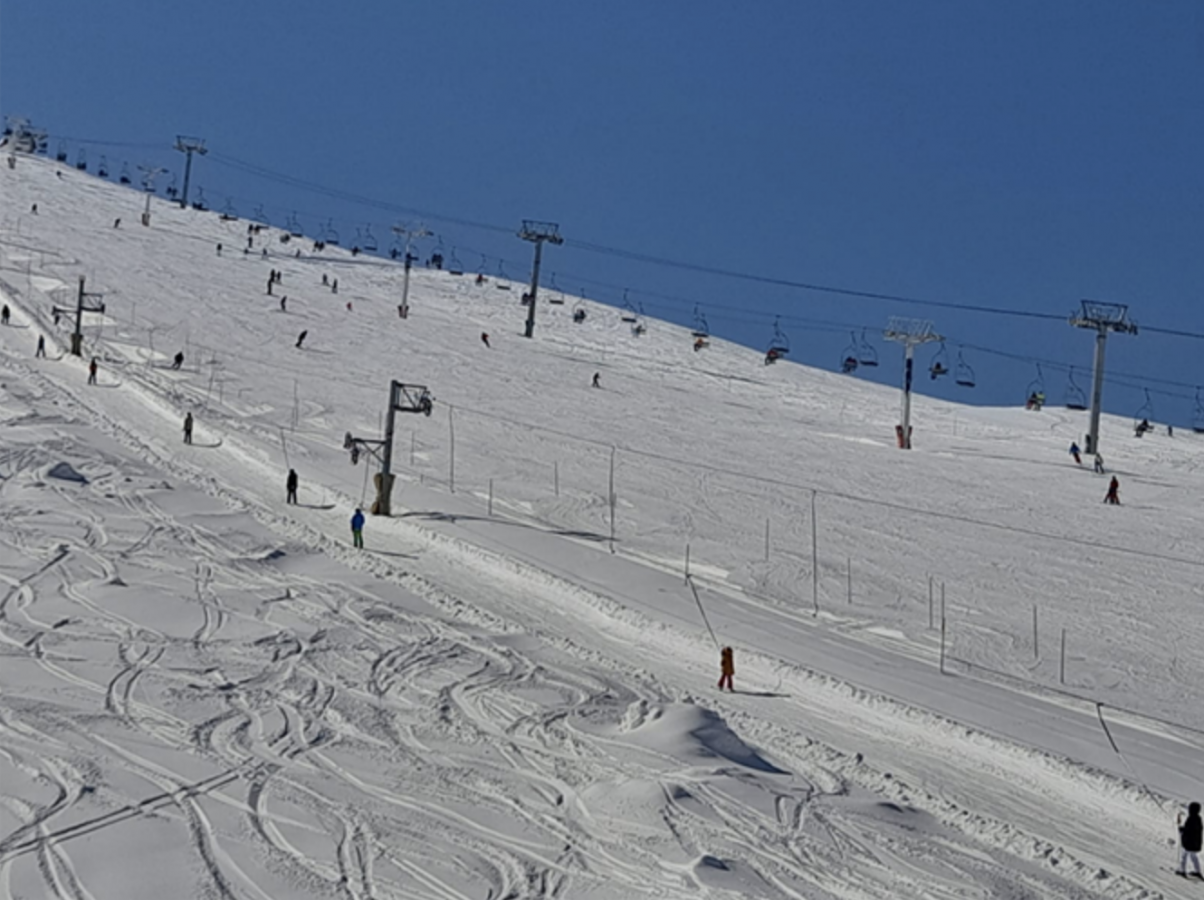 The financial situation of this season varied for various ski stations. (Credit: Magaly Abboud/OLJ)
The financial situation of this season varied for various ski stations. (Credit: Magaly Abboud/OLJ)
Attendance
All these problems had an impact on the number of tickets resorts sold. On ski days, attendance varied from one resort to another. The larger centers had a good number of customers, while the smaller ones reported a big drop.
Mzaar, for example, which shut one of its two ski areas, saw attendance of “60 percent of capacity on its open hill” during the scarce sunny days, said Wakim, who agreed that the closure was “a good decision.” With nearly 3,000 skiers per day, she continued, attendance was better than expected. “The expatriate clientele also contributed to the hill’s smooth functioning.” The same goes for Zaarour where, for reasons Murr cannot explain, attendance was better than expected.
For the Cedars and Laqlouq resorts, the opposite was true. Attendance at the former was down by “50 to 60 percent” in 2022 compared to last season because of the crisis, laments Fakhry, going on to say that “people who used to ski regularly, 10 to 15 times a season, have only been to the resort two or three times this year.” He acknowledged that the snow during the holiday season attracted some expatriates but, after that, most skiers were resort regulars.
Laqlouq resort said that prominent Beirut schools did not organize ski classes this year, as they once did, because of the storms. Saab noted that people with dollars — those who receive their salaries in “fresh” dollars — have not changed their attendance.
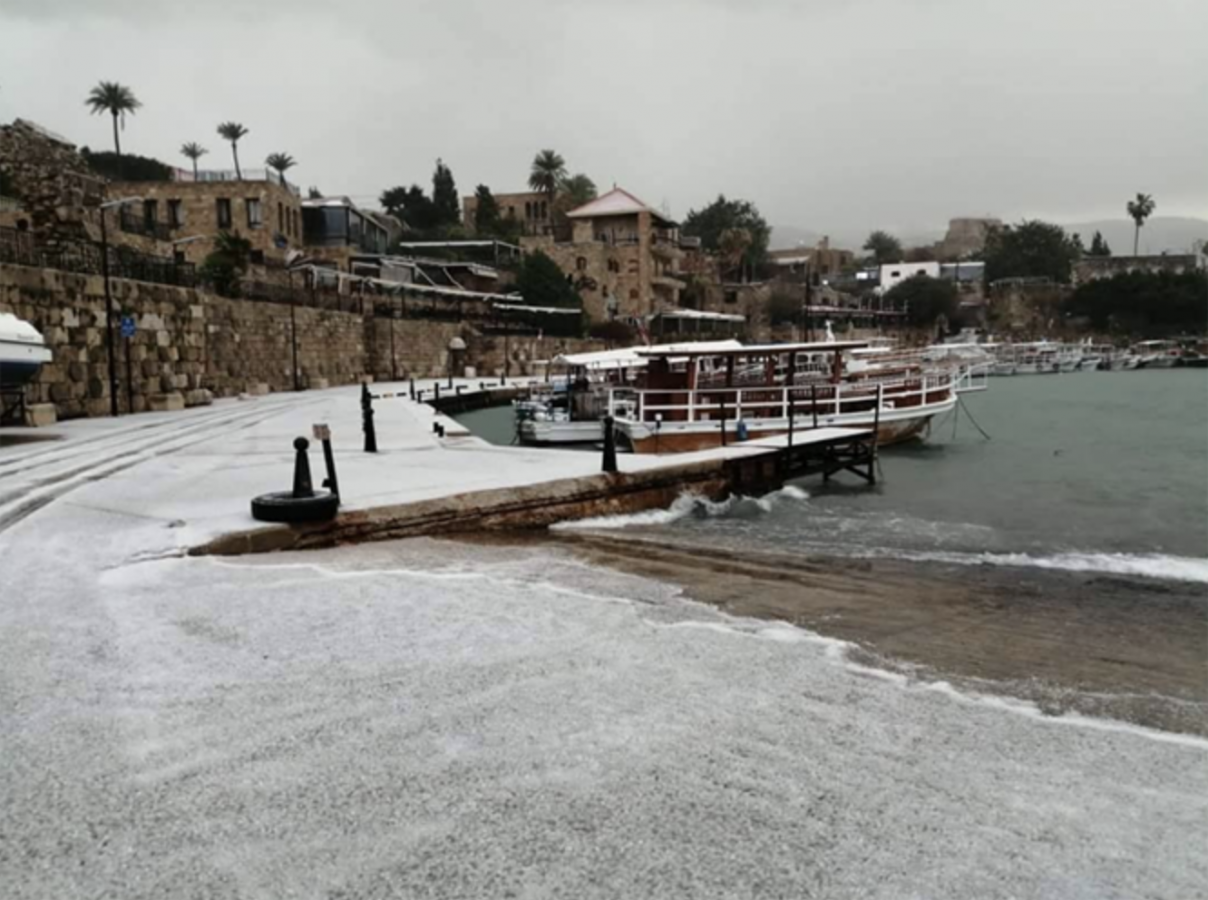 The Jbeil port covered in snow on January 27, 2022. (Credit: Michel Hallak/OLJ)
The Jbeil port covered in snow on January 27, 2022. (Credit: Michel Hallak/OLJ)
Ski lessons
Requests for ski lessons at Mzaar have not decreased from previous years, including new and old clients, Wakim said. The Zaarour resort says it received many requests, especially during weekends, though it says the crisis has driven many young instructors to emigrate. The instructors who remained in the country were paid directly by the clients in dollars, or in lira at the daily rate; permanent or seasonal employees were paid in lira or in “lollars” — dollars exchanged at the rate of 8,000 lira, which banks have blocked since the beginning of the crisis in 2019. Under these conditions, salaries have been revised upwards in all resorts, and even monthly in some cases.
Wages are not the resorts’ only expense. In addition to diesel to power the generators that run the lifts, they also had to cover maintenance costs, most of which are denominated in dollars, including repairs due to the severe storms that have damaged most sites. Lightning struck the Zaarour resort, for example, and storms damaged Mzaar’s lifts, “requiring complex repairs over several days,” said Wakim.
The machines that maintain and prepare the slopes, she continued, “were hard at work to clear buried equipment and other materials,” which increased fuel costs.
“When there's a lot of snow, it means more expenses,” said Fakhry, “because of the maintenance and preparation of the runs. We start over every time it snows.”
Cedars opened all its slopes, as did Laqlouq. After the storms Zaarour decided to operate only four of six ski lifts, due to maintenance and clearing time, but subsequently opened all its slopes.
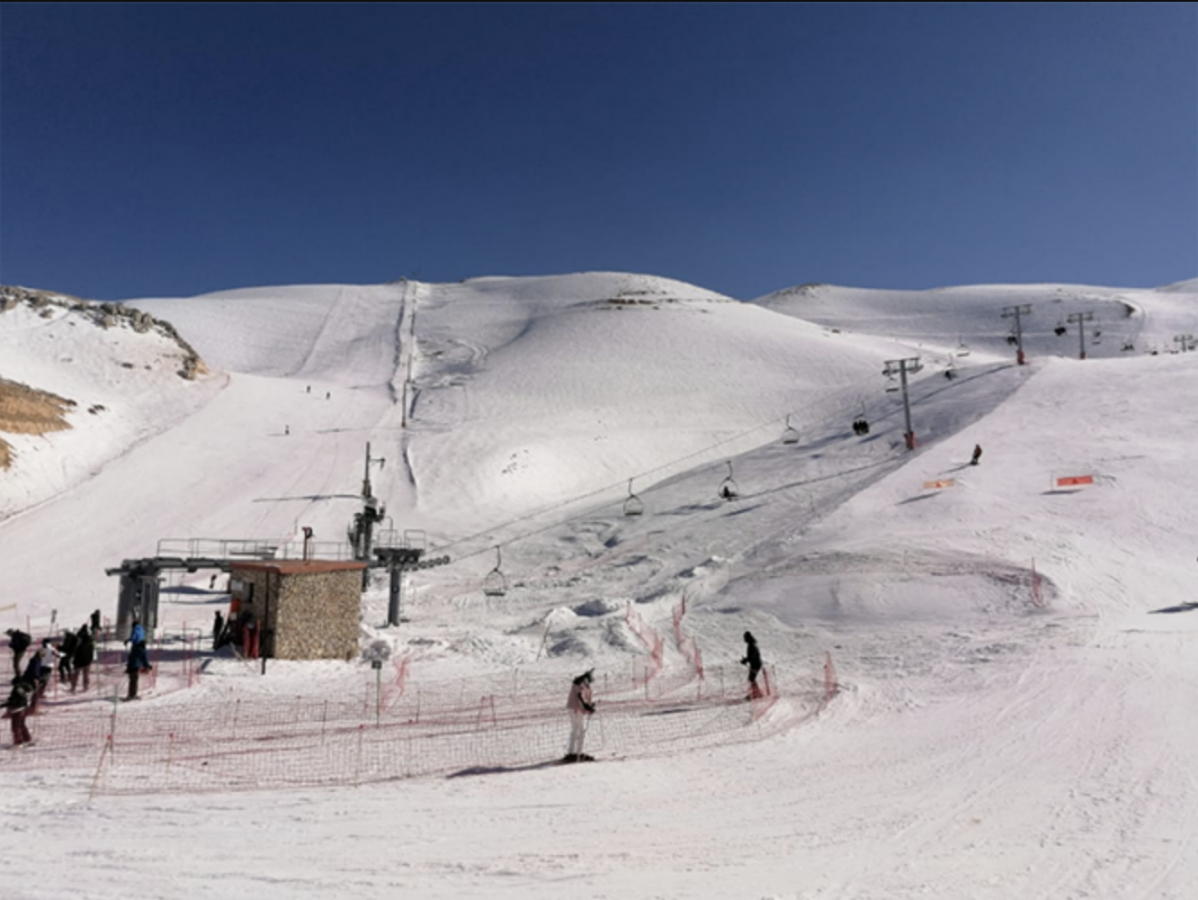 During days where skiing is possible, attendance varies from one station to the other. (Credit: Fouad Gemayel/OLJ)
During days where skiing is possible, attendance varies from one station to the other. (Credit: Fouad Gemayel/OLJ)
The bottom line
The 2021-2022 winter season has been rather mixed as far as the financial health of ski resorts is concerned. The representative of Mzaar said it has done rather well, and it was “a good year [for them], as well as for restaurants and rental equipment stores.” Zaarour’s results “are not catastrophic” and are even “better than expected,” according to Murr. But “it was not a good year for all companies in Lebanon, especially those in tourism. The customers cover immediate operating costs but not repair costs, not to mention the investments.” In the end, Murr summarizes, “we survive while waiting for better days.”
As for the Cedars, this year's results were better than those of 2021 — when it was only able to open for one month due to Covid-19 restrictions — but numbers are down compared to those recorded in 2019 and 2020. The resort at Laqlouq chose to offer financial help to the two hotels and chalets to cover the relevant costs. Saab said the fact that there were no ski classes this season greatly affected the resort’s finances, and noted the situation in the country does not allow resorts to plan for the future.
Club Zaarour’s CEO said it is difficult to run a business in Lebanon today. “We can not make forecasts because of the fluctuation of the exchange rate and the instability of several factors — diesel, gasoline, bread, food products, etc. Only Laqlouq plans to invest in the installation of solar panels to reduce electricity costs. Ultimately, Mzaar sees its future to be that “of the country as a whole.”
This article was originally published in French in L'Orient-Le Jour.